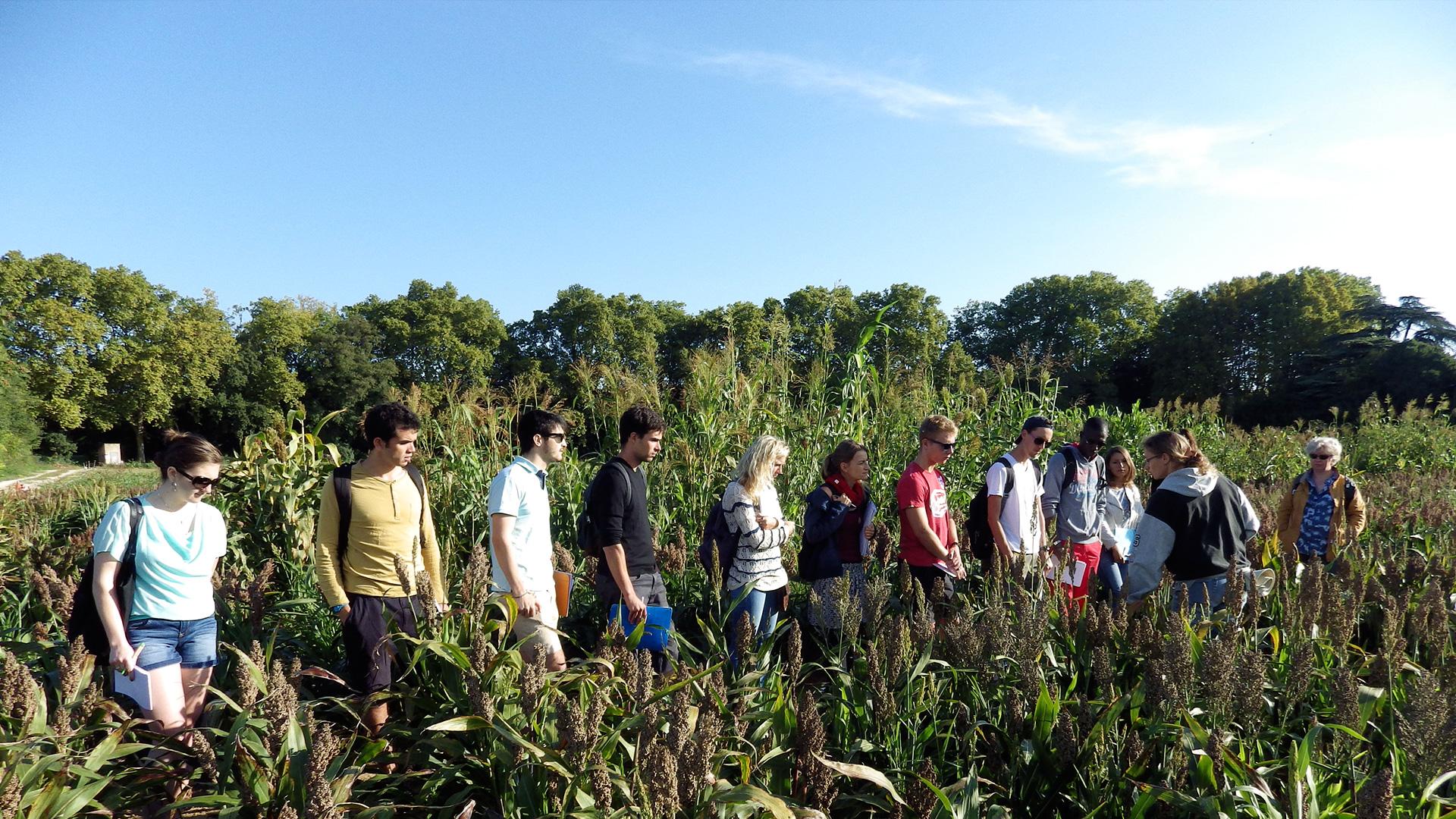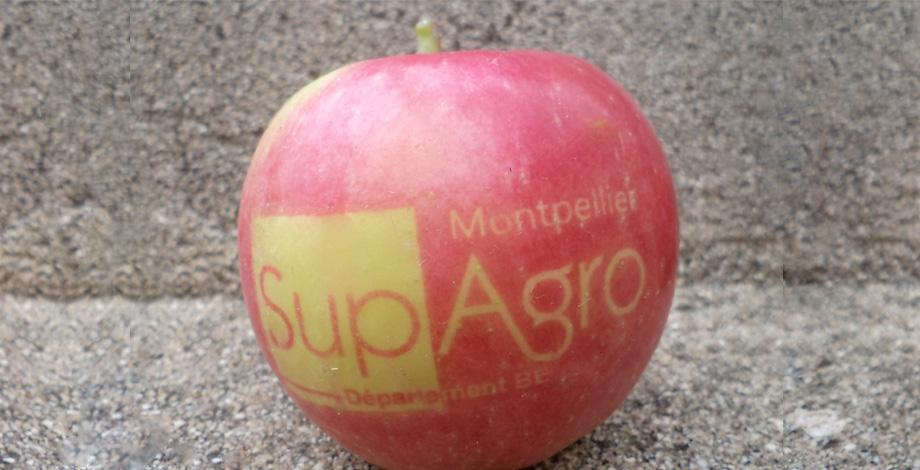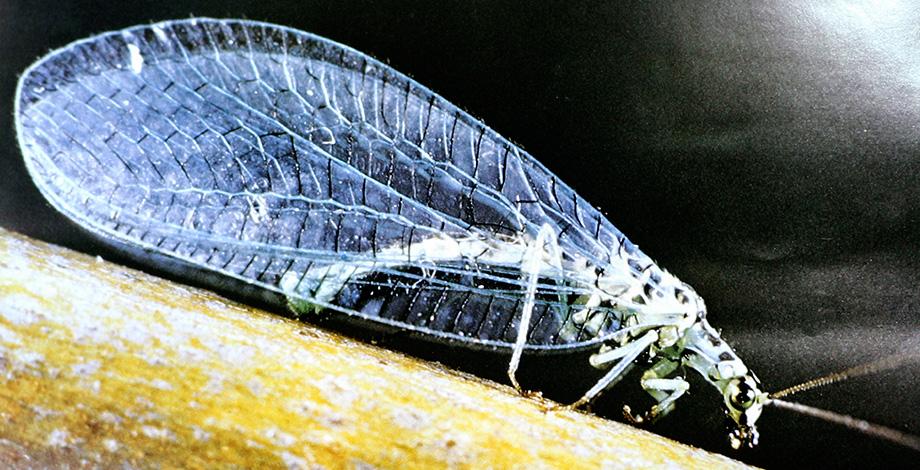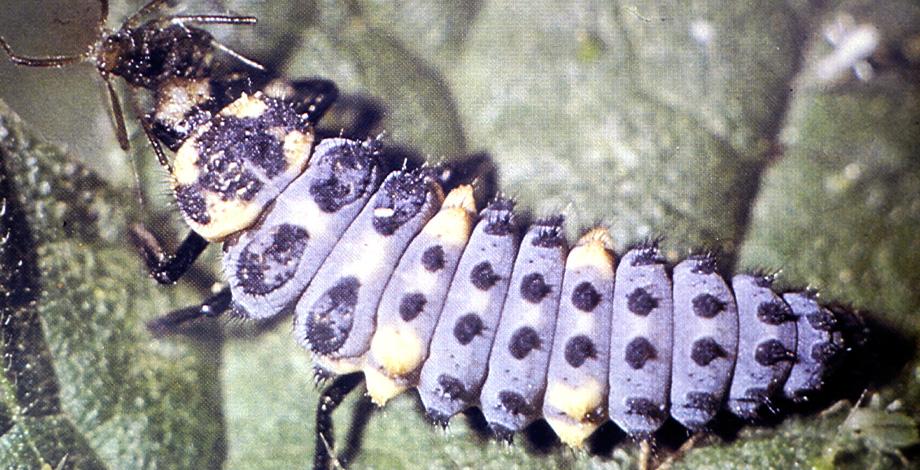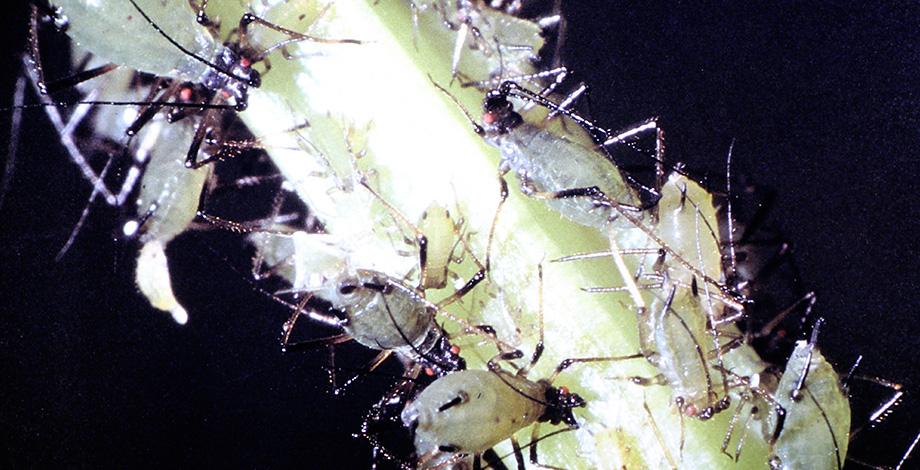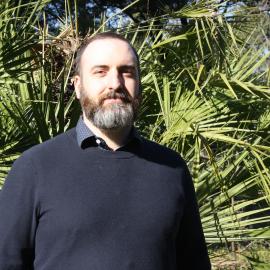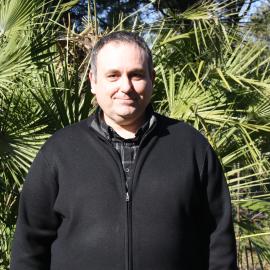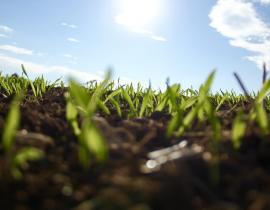The teaching and research activities of the Department of Biology and Ecology lie at the interface of two scientific axes: agro-ecological transitions & predictive bioengineering. They cover a wide range of disciplines applied to plants, micro-organisms and animals: bioclimatology, biochemistry, bioinformatics, ecology, ecophysiology, genetics, physiology, systematics, epidemiology, and biology of plant, animal (zoology) and microorganism (phytopathology) populations.
Training programme
The teaching staff in the Department of Biology and Ecology are central to Montpellier SupAgro’s training programmes and contribute significantly to the instruction provided at the engineering, master, vocational and continuing education levels.
MSc in Engineering programmes
The team is deeply involved in the Agricultural Engineering program, offering two pre-specializations and two specializations in the second year, and two options in the third year.
2nd year (M1)
- Pre-specializations: Towards sustainable agriculture and Sustainable management of natural resources
- Specialization: Plant Sciences and Agroecology
3rd year (M2)
The department's teaching team also contributes to the Sustainable agricultural & food systems for the south (SAADS) Engineering programme through the module, "Ecosystems, agricultural and agri-food territories".
Master programs
Furthermore, the Department of Biology and Ecology coordinates three second year (M2) specializations of the International Master, "Agronomy and Agrifood Sciences” (Master 3A):
The department also coordinates two co-accredited Master programs:
- Biodiversity, Ecology and Evolution – Darwin Specialization with the University of Montpellier and
- Plant Health European Master, an International Erasmus M2 with the Universities of Valencia (Spain), Göttingen (Germany), Padova (Italy).
Research
The Department of Biology and Ecology has strong links with six joint research units (UMRs) in which the researcher-professors carry out their research (AGAP, BGPI, PHIM, CEFE, LEPSE) and provides instruction in three thematic fields addressing various agronomic issues.
Thematic fields
- Plant production basics: understanding biotic and abiotic processes and interactions at different scales (from the genome to communities) to address major issues in crop production and associated changes in practices.
- Plant breeding: understanding the mechanisms leading to the diversity of cultivated plants in order to modify this diversity to meet the challenges involved in agroecological transition against a backdrop of global changes and saving/preserving resources.
- Plant protection and ecological engineering: understanding the biological interactions between plants, their pests and their natural enemies to propose plant protection strategies to reduce production losses by ensuring healthy products, limiting impacts, and contributing through sustainable production systems to ecosystem equilibrium, whether the ecosystem is highly anthropized or not.
Agronomic challenges
- Adapt plant varieties and plant management practices to global changes by studying their impacts on cultivated biodiversity and associated interactions (food chains, competition, parasitism...).
- Protect crops differently through the development of environmentally friendly pest control methods (i.e., biocontrol).
- Develop methods for managing biodiversity through agroecological approaches linking cultivated diversity (mix of species and varieties) and environmental production constraints (environmental law).
- Understand to predict by modelling plant phenotypes and genotypes in response to constraints, interactions between populations (pests and natural enemies) and their impacts in terms of management (i.e., epidemiosurveillance).
Innovations and partners
The department has strong expertise in the fields of plant engineering (diagnosis, piloting), plant breeding (variety creation, management of genetic resources) and plant protection.
The department’s transfer activities are based on the development of a very active collaborative network involving the main professional players working in the sectors concerned. Links with partner UMRs are also developed through projects funded by Agropolis Fondation (i.e., Evidap, Adanson, Nectar, CultiVar, PARMI with the UMRs BGPI, CBGP, LEPSE, AGAP, CEFE). These are contributing to very dynamic digital learning (i.e., MOOC) and associated pedagogical engineering efforts.
Contacts
L'Institut Agro Montpellier
2 place Pierre Viala
34060 Montpellier - France
Tél. : +33 (0)4 99 61 22 00 Tél. : +33 (0)4 99 61 22 00
Fax : +33 (0)4 99 61 29 00
contact@supagro.fr

